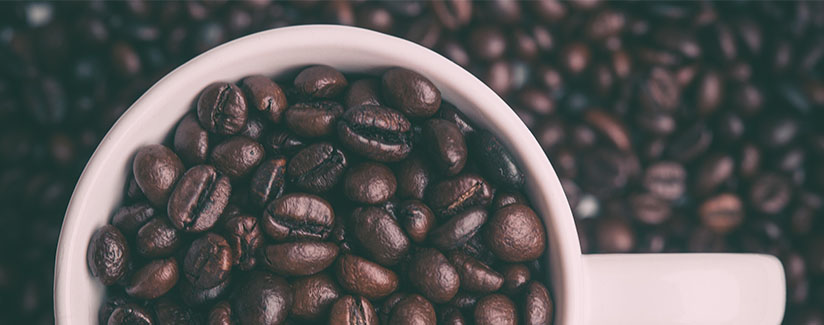
Bulletproof Coffee Explained
Unless you’ve been living under a rock for the past year, you’ve probably heard of Bulletproof coffee. What is it? A coffee drink made up of coffee, butter, and medium-chain triglyceride oil, Bulletproof coffee is meant to replace breakfast. Created by Silicon Valley investor and technology entrepreneur Dave Asprey, the Bulletproof coffee cult has grown fast and it doesn’t appear to be going anywhere anytime soon.
We wanted to find out if adding a few hunks of butter to our morning joe is really a good idea, so we reached out to registered dietitian Connie Diekman, Nutrition Communications Consultant and Director of University Nutrition at Washington University in St. Louis, for some insight.
The bulletproof coffee recipe calls for low-mold (mycotoxin-free) coffee beans. What are mycotoxins? Are they harmful?
Connie Diekman: “Mycotoxins are molds that do exist naturally in agricultural crops. In the U.S., the FDA sets limits for the levels of mycotoxins that are considered safe for consumption. Throughout the world, other health agencies set similar guidelines. When mycotoxins accumulate above the safe level they can be harmful for consumption, but FDA monitoring of the food industry does identify the excess of mycotoxins.”
What is the difference between grass-fed butter and grain-fed butter?
Connie Diekman: “The theory behind the claims for grass-fed butter typically are connected to the omega-3 fatty acid that goes up when cattle are grass fed. The problem with this theory is that the amount of omega-3 in the meat or milk of grass-fed cattle is significantly less than that found in good sources of omega-3, so that it would require larger quantities of the butter to equal the omega-3 of salmon, tuna, sardines, walnuts, flax or canola oil.”
What is MCT oil?
Connie Diekman: “MCT oils or medium-chain triglycerides are fatty acids that have a shorter length resulting in different digestion and absorption. They have been used for decades to help people who need more calories but who have compromised digestion get the energy they need. Recent interest in them is related to a few animal studies that seem to indicate a role for them in satiety, but these studies are preliminary in the animals and need to be done in humans. So any claims associated with a benefit to weight loss are at this point preliminary and not supported by science.”
Bulletproof coffee is a part of the Bulletproof diet. What are your thoughts on this diet and what do you recommend people consider before starting this diet?
Connie Diekman: “The bulletproof diet is basically a high-protein, low-carbohydrate diet, a diet that has had many variations over the years. High-protein diets help with satiety so that you can consume fewer calories more comfortably, but the heavy emphasis on animal foods is not healthful. Current scientific evidence shows that consuming more plant foods is the correct path to health. Plant foods provide a wide variety of phytonutrients that act to promote health, reduce inflammation and act as antioxidants.
Some recommendations of the Bulletproof diet are similar to a healthful eating plan – reduce added sugar intake, enjoy what you eat, use spices and herbs to enhance flavor – but skipping more healthful plant foods to consume more fats is not moving in the right direction. There is a reason this is a diet – it is not an eating pattern that can be maintained for a period of time – and that is the key to healthy eating – an eating pattern you enjoy and that you can maintain for life.”
The inventor of Bulletproof coffee claims that replacing breakfast with this 450-plus calorie drink will suppress hunger, promote weight loss and provide mental clarity – is there any truth to this claim? Is it a good idea to skip breakfast in favor of Bulletproof coffee?
Connie Diekman: “Fad diets all have claims to their fame but what is important in terms of health and a healthy weight is what the science shows. There is no significant evidence to indicate that MCT oil – or as they brand it, XCT oil – promotes weight loss or reduces body fat. Very small-scale, and often animal, studies have looked at MCT oil and weight loss and thus far no conclusive evidence exists. So don’t skip a powerhouse breakfast of whole grains, fruit, low-fat dairy and if you like – a little bit of protein – for this cup of coffee.”


























